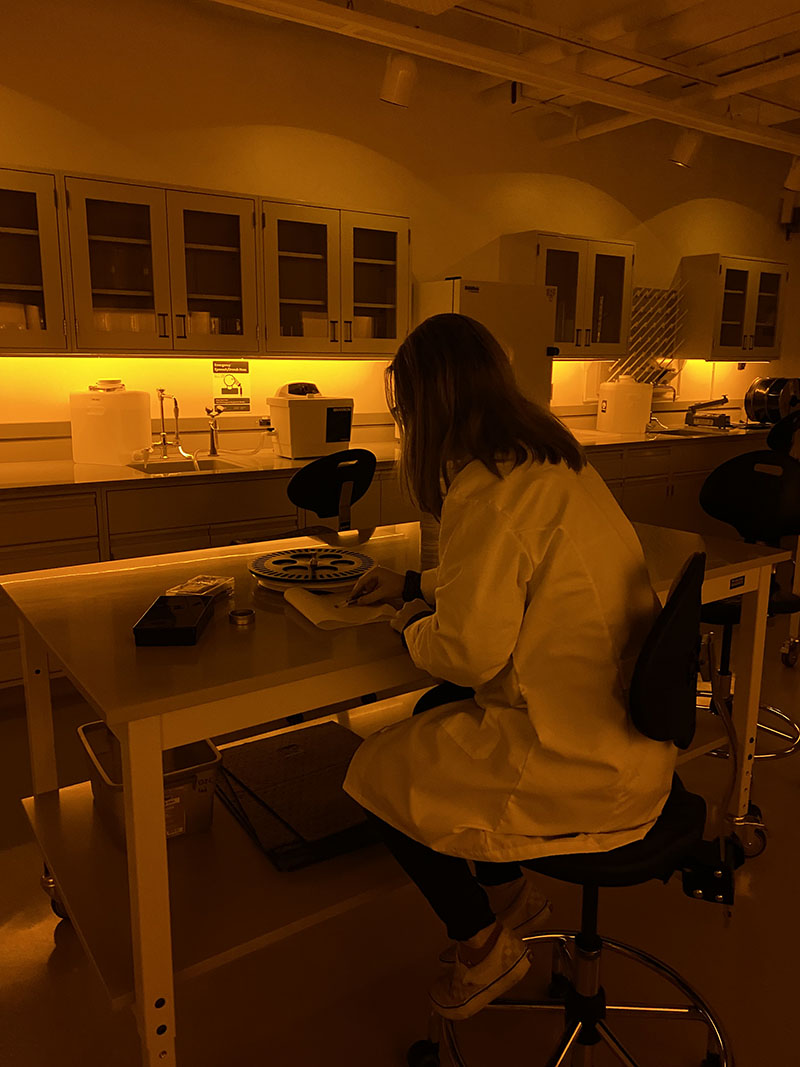Geosciences Ph.D. program
New Ph.D. students are typically supported with a full tuition waiver and a competitive annual salary. Other graduate student fellowship opportunities offered by Stony Brook University are another means of support. In addition, qualified students might also wish to submit proposals to the NSF (National Science Foundation) for pre-doctoral support. Students who maintain good academic progress in course work and research almost always enjoy continued support (at the same or higher levels as described above) until they have obtained their degree.
Advancement to Ph.D. candidacy is gained after the successful completion of the Ph.D. preliminary examination. The examination is the culmination of an evaluative process that begins when the student arrives at Stony Brook. In particular, the faculty seeks evidence of scientific creativity, originality, vigor, and flexibility, along with the basic background knowledge, skills, and critical faculties needed to carry out advanced independent research in the student's chosen field. The minimum residence requirement is two consecutive semesters of graduate study. There is no language requirement.
A. Course Requirements
During their first semester, all students must enroll in GEO 500, Geosciences Research
Seminar. In addition, all students must register for GEO 696, Geosciences Colloquium,
and GEO 697, Geosciences seminar, each semester, and GEO 600, Practicum in Teaching,
at least once. All other course requirements are flexible and are determined in consultation
with the student's academic advisory committee.
Course descriptions and details can be found in the Graduate Catalog: GEO Graduate Course Descriptions
B. Research Projects
 Each student carries out individual research projects with one or more faculty members,
as part of the requirements leading up to the Ph.D. qualifying exam. The requirements
for each of these projects are determined by the individual professors with whom the
research is carried out. When working on such a project, students register for either
GEO 590 or GEO 599 Research.
Each student carries out individual research projects with one or more faculty members,
as part of the requirements leading up to the Ph.D. qualifying exam. The requirements
for each of these projects are determined by the individual professors with whom the
research is carried out. When working on such a project, students register for either
GEO 590 or GEO 599 Research.
C. Ph.D. Preliminary Examination
Students must successfully pass the preliminary examination, which consists of the preparation and oral defense of a Ph.D. dissertation proposal. Procedural details are found in the Geosciences Graduate Handbook.
The Ph.D. dissertation proposal specifies the scientific rationale for the proposed
dissertation work, the relevant work done thus far, and the techniques and effort
required to reach the research objective. The oral defense consists of a short public
presentation of the dissertation proposal given by the student, after which there
is a closed oral examination. When the graduate program director has been informed
y the chairperson of the examination committee that the student has passed the Ph.D.
preliminary examination, the department recommends to the Graduate School that the
student be advanced to Ph.D. candidacy.
D. Teaching Requirement
All graduate students must satisfactorily complete GEO 600, Practicum in Teaching,
at least once.
E. Dissertation
 Students must prepare a dissertation document, satisfying the Graduate School and
dissertation committee requirements. This document is the final culminating element
of the doctoral degree and summarizes the original scientific research completed by
the Ph.D. candidate. The nature, scope, and scientific content is determined at the
discretion of the student, their advisor(s), and their Ph.D. dissertation defense
committee.
Students must prepare a dissertation document, satisfying the Graduate School and
dissertation committee requirements. This document is the final culminating element
of the doctoral degree and summarizes the original scientific research completed by
the Ph.D. candidate. The nature, scope, and scientific content is determined at the
discretion of the student, their advisor(s), and their Ph.D. dissertation defense
committee.
F. Ph.D. Dissertation Oral Defense
The student makes a public presentation of the major results of their dissertation. The defense is followed by a closed session, during which the student is examined primarily, but not exclusively, on the dissertation topic.
